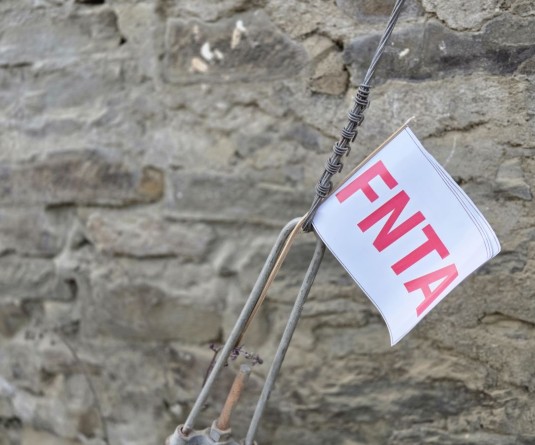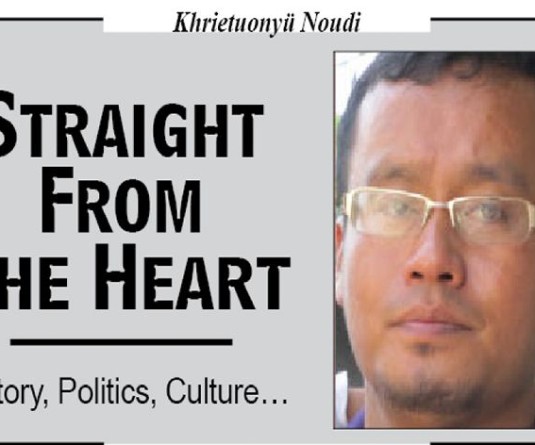
M Sashi Jamir
The word “corruption” has become ubiquitous among the Nagas. Contextually, corruption simply means misuse of public money by those who are endowed with the responsibility to govern the state and its citizens (and so called as the public servants). The kind of governing system we have today is well comprehended by what is called as the proprietary theory of the state. Proprietary theory states that the governing class considers political power a prize to be sought for the rewards it offers rather than an opportunity to serve the public. Efforts to raise the living standards of the common people are rare, efforts at self-aggrandizement commonplace. Government offices are bought and sold like pieces of property, which the purchasers then use to obtain the greatest possible profit. Officeholders demand payment before they would act, and justice is typically sold to the highest bidder. Further more proprietary theory of the statedefines the state as a piece of property that its owners may use, within broad and ill-defined limits, for their personal advantage. Guided by such thinking, the public servants see nothing immoral in the use of what we would call “public office” for private gain. For many of them, it is simply the legitimate use of what they regard as their “patrimony.”
One reason for such thinking and practice could be that the “common goods” for all the people of the state are limited and therefore the elite sucks up all the resources belonging to the people. Another reason could be the want to maintain power, security, and perhaps prestige by the elite. Yet, these two cannot be distinguished from one another. In fact they are inter-connected. As a result the governing class calibrates its system in such a way that all the goods are divided among themselves and its allies. The danger with this kind of system is that factors such as power, security, and wanting to amass wealth are insatiable and therefore, the governing class and its allies will try and continue to keep the system of extraction intact and protected. In this manner a dysfunctional system yet a system of “absorbing wealth and power” is created at the expense of proper and good public infrastructure and welfare. The effect of such a system among the common people is that of apathy – that paralysesthe capacity to imagine “outside” the system of “absorbing wealth and power.” It makes the mind of the common people hapless and resigned to their listless life asif it were fate or for some even normal!
Reading the Bible Faithfully
Interestingly the Bible was written much within such kind of context – a context of “absorbing wealth and power.” The book of Exodus describes the totalizing power of Pharaoh who wanted to keep the Hebrews under the bondage of his absorbing power. The book narrates (Exodus 3) that the Hebrews cried out to God. In other words they mobilized God. It is not God who initiated the exodus event. It is only in the crying out of the common people that a “messiah” was born. As the story unfolds, God sentMoses, who was inspired from “outside” the totalizing power of Pharaoh, to champion the exodus or the departure of the Hebrew slaves from the totalizing power. This led the Hebrews into the wilderness, which means outside the reach of the Pharaoh and the Hebrew slaves discoveredthat there was enough food for all beyond the system of absorbing wealth and power even in the wilderness! Then the Hebrews received the Ten Commandments at Mt. Sinai. The Ten Commandmentswere a guideline for an alternative system to that of the system of “absorbing wealth and power.” These were rules to prevent the economy of extraction. The alternate system was that of neighborliness: thou shall not covet/extract your neighbor’s property and bear false witness against them (see Ex 20: 16-17). Thus the Sinai law was a law on neighborliness and how to live neighborly with one another.
Again Israel during its monarchic period, especially beginning from the reign of Solomon, instituted such “absorbing power. “ Solomon began his career in good relationship with God but as time elapsed he began to amass wealth, wives, horses etc. This accumulation of wealth came from his heavy taxation and forced labor among his own people (1 Kings 4). Such totalizing system within Israel itself (who were once slaves themselves) gave rise to the prophetic movement in Israel who were too inspired from “outside.” The prophets (such as Hosea, Micah, Isaiah, and Jeremiah),basing on the law of neighborliness, were critics of the totalizing power and their message of divine judgment basically meant that the system of corruption was not going to sustain. Consequently the Babylonians demolished Jerusalemas predicted by the prophets.
Finally, the narrative of Jesus took place within the context of the totalizing power of the Roman Empire. The way the Romans did this was to find Jews to sign on with Rome to collect tax. The Jews taxed their own people for Rome and whatever surplus they could extract was for them to keep. It was a lucrative industry for the tax collectors! Little wonder Jesus had lot of encounters with the tax collectors who were Jews themselves and yet were sold out to the Roman governing system. In Luke 19 Jesus encountered a tax collector in Zacchaeus. In this meeting Jesus remindsZacchaeus that he was a son of Abraham who carried the promise of God. It is like telling the Christians that,“you are God’s people who have forgotten your identity and baptism in Christ.” Besides Jesus’ engagement with the tax collectors he alsohad the opportunity to elaborate the concept of neighborliness when he was questioned, “who is my neighbor?”(Luke 10). A neighbor is anyone who is in need. Jesus dared to envision an alternative system of neighborliness – to that of the economy of corrupt extraction – which threatened the status quo and perhaps, contributed to his tragic and selfless death.
Neighborliness - An Alternate Vision
Neighborlinessencapsulates the vision of the biblical God for humanity. It is what was found in the Old Testament wilderness and utilized imaginatively both by the prophets as well as by Jesus. Neighborliness boils down to a care for the commons, care for the well-being of the whole, that which hold for the sake of all. Neighborliness welcomes all into community. It stands for hospitality, the taking care for one another.
The neighborly concept is not a utopian theory or another pietistic voice without any substance. The concept of neighborliness demands a change of heart and intellect. To initiate such an alternate vision into realitycommon people mustintentionally cry out about their plight meted out by the dysfunctional system of absorbing wealth and power, realizing that there is abundance of means for all beyond such a corrupt system. The neighborly concept is based on trusting God and his mystery – trusting that even in the wilderness there is abundance of means for all the people in the community, and trusting in a God who has made the wild lilies more beautiful than Solomon in all his glory and majesty [which Solomon ironically achieved by accumulating wealth from the common people! (Matthew 6)].Simultaneously, every consciouspublic servant should realize that a society or state is one big family of community. Instead of accumulating wealth for one’s own purpose – for instance accumulating money to send our kids to the best school outside our state or building houses not only for our children but also for grand children – if the wealth is utilized for the development of everyone then it is simple but powerful commonsense that ourown purposes will be fulfilled without misusing public wealth and without tarnishing our integrity. Neighborliness is a concept whereby everybody can grow together in a well developed state system having good schools, hospitals, roads, housings, businesses, food and so on. Let’s dare to envisage such a society because at the end, life is not about accumulating wealth (has any one carried his/her wealth to the grave?) but life is all about celebrating God’s gift of life through the act of neighborliness.





